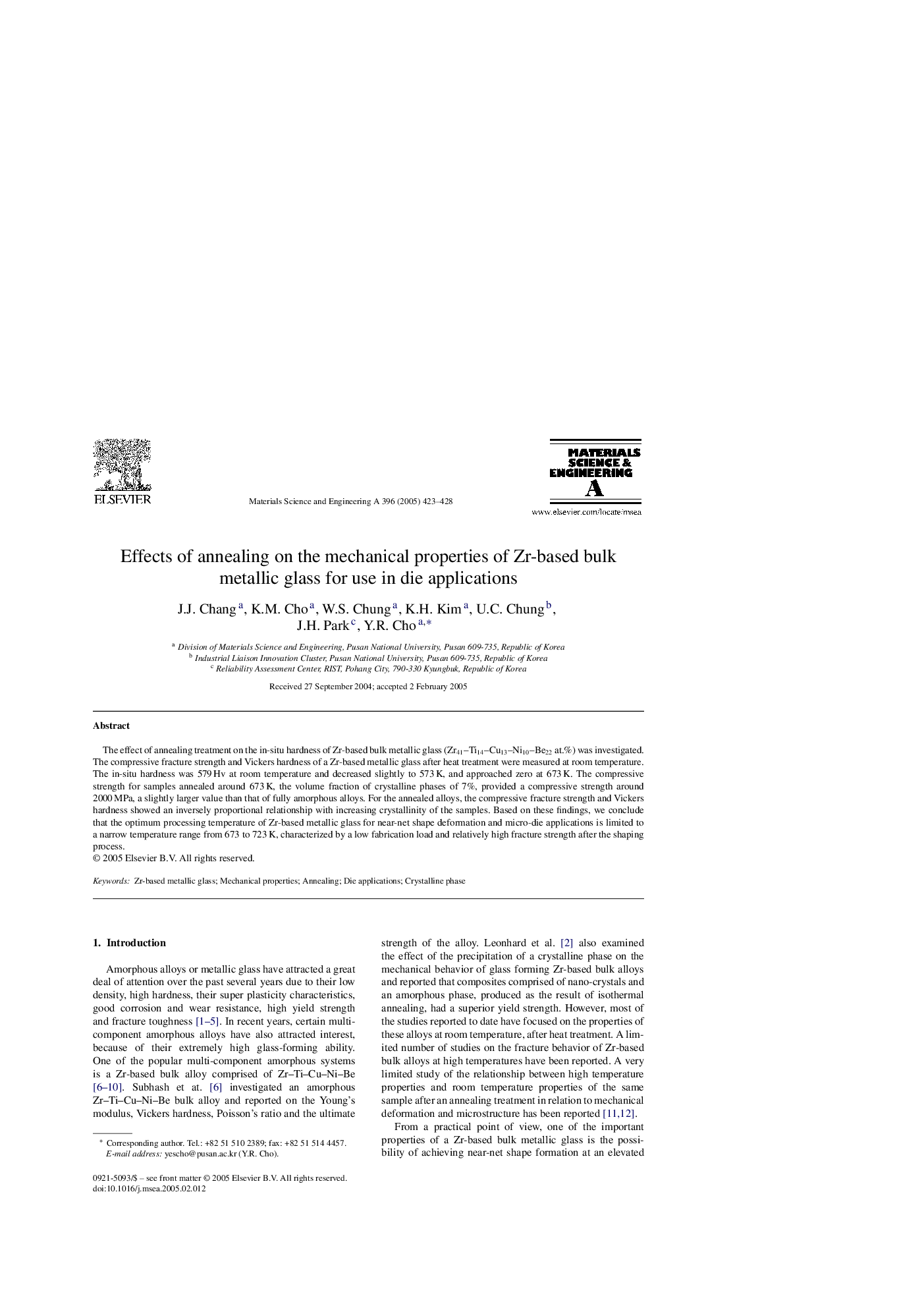| Article ID | Journal | Published Year | Pages | File Type |
|---|---|---|---|---|
| 9796370 | Materials Science and Engineering: A | 2005 | 6 Pages |
Abstract
The effect of annealing treatment on the in-situ hardness of Zr-based bulk metallic glass (Zr41-Ti14-Cu13-Ni10-Be22 at.%) was investigated. The compressive fracture strength and Vickers hardness of a Zr-based metallic glass after heat treatment were measured at room temperature. The in-situ hardness was 579Â Hv at room temperature and decreased slightly to 573Â K, and approached zero at 673Â K. The compressive strength for samples annealed around 673Â K, the volume fraction of crystalline phases of 7%, provided a compressive strength around 2000Â MPa, a slightly larger value than that of fully amorphous alloys. For the annealed alloys, the compressive fracture strength and Vickers hardness showed an inversely proportional relationship with increasing crystallinity of the samples. Based on these findings, we conclude that the optimum processing temperature of Zr-based metallic glass for near-net shape deformation and micro-die applications is limited to a narrow temperature range from 673 to 723Â K, characterized by a low fabrication load and relatively high fracture strength after the shaping process.
Related Topics
Physical Sciences and Engineering
Materials Science
Materials Science (General)
Authors
J.J. Chang, K.M. Cho, W.S. Chung, K.H. Kim, U.C. Chung, J.H. Park, Y.R. Cho,
